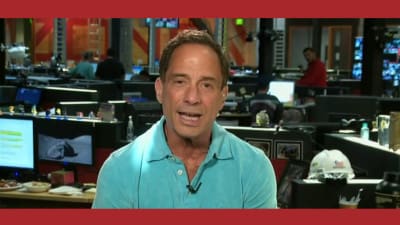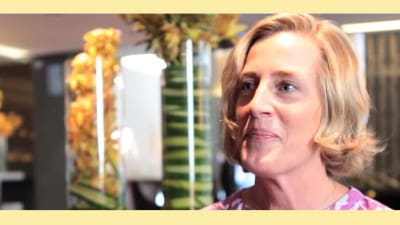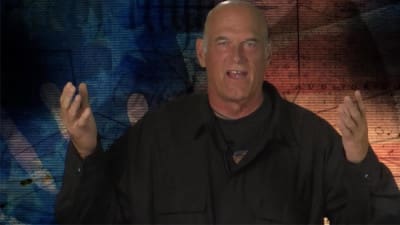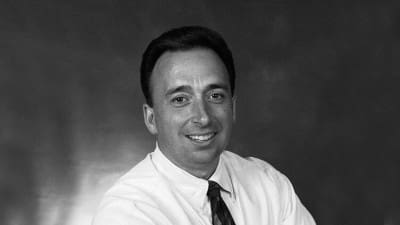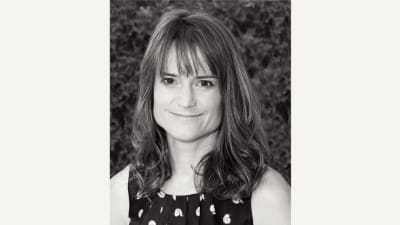Dubbed by The New York Times as the man “who may represent the future of celebrity journalism,” Levin presides over TMZ.com (with its 10.8 million monthly visitors) and executive produces and hosts TMZ TV, seen in 45 countries around the world. “TMZ is not a Web site and a television show,” he says. “It’s a news organization that feeds different platforms. We’re one operation.”It’s been a long, unexpected trip from The People’s Court to TMZ for Harvey Levin.
The former law professor who “never saw beyond teaching” offered a master class in celebrity journalism last month when TMZ broke the story of Michael Jackson’s death, leaving traditional news outlets in the dust as they played catch-up covering the biggest entertainment story of the decade.
Also on Mediabistro

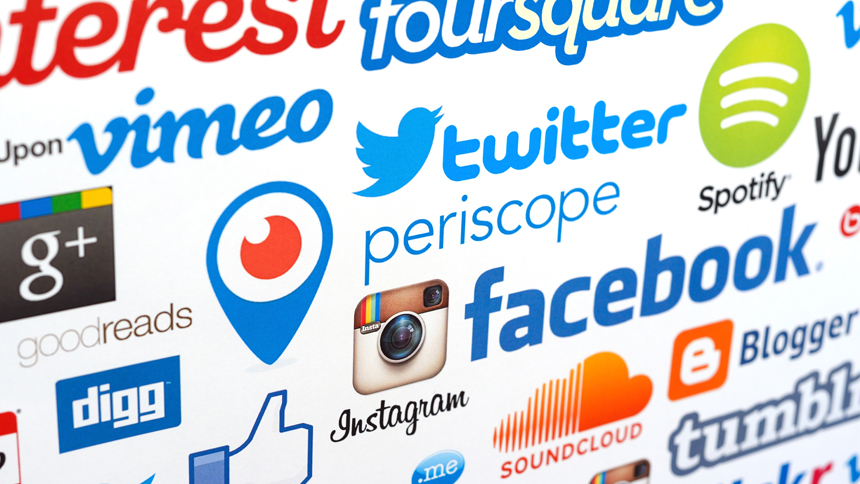
And while it’s an operation that has scooped the competition by being first to report Mel Gibson’s run-ins with the Los Angeles police, Heath Ledger’s death and John Travolta’s son’s death among other Hollywood headlines, Levin maintains that he and his staff are not in the business of gotcha journalism. TMZ, says Levin, has a mission to give viewers the unvarnished truth about Hollywood — and “have fun” doing it.
“If somebody makes it clear to us that they really don’t want to be any part of it, I’ve told our guys to back off. We’re redoubling our efforts on this,” he says. “Most celebrities totally play along. They love being on the show because it makes them relevant. That’s the biggest thing for celebrities.”
Name: Harvey Levin
Position: Host and executive producer, TMZ, and managing editor for TMZ.com; executive producer, Beyond Twisted.
Resume: Taught law school at the University of Miami in the mid-’70s; briefly practiced in Los Angeles before returning to teaching. Landed first television gig covering legal issues in 1982 at KNBC-TV in Los Angeles. Legal columnist for the Los Angeles Times for seven years. Spent a decade doing investigative reporting for KCBS-TV and affiliates. Prior to TMZ, created and served as executive producer for Celebrity Justice. Served as co-executive producer for The People’s Court for 19 years.
Birthdate: September 2, 1950
Hometown: Los Angeles
Marital status: Single
Education: UC Santa Barbara; University of Chicago Law School
Favorite TV show: “I love Dexter. I think it’s just a fun show. And True Blood is great.”
Guilty pleasure: “My guilty pleasures have waned. I’ve turned into a health nut, so my guilty pleasure is steak. I go to the gym at four in the morning every day and I eat really healthy. It’s become the centerpiece of my life — which shows you how boring my life is.”
Last book read: “I just read Larry King’s book, which was fabulous, and I also read The Fall and Rise of Ted Kennedy which was great.”
How does one go from being a law professor to a television reporter to a reality show guru? How would you describe your career trajectory?
It really was a long, tedious process. I was a law professor, then I practiced law and decided I wanted to go back to teaching. Then something really crazy happened where the dean of my law school took on this campaign against Proposition 13. They were looking for someone to debate Howard Jarvis and they needed somebody who didn’t own a home or looked like they were part of a special interest group.
I started doing stuff on the radio and after the election, the radio station offered me a job doing a weekend show called Doctor Law, where I’d give advice. I started writing a similar column for the Los Angeles Times, and then started doing these appearances and ended up on Channel 4.
All of a sudden I got really into investigative reporting, and that’s all I wanted to do for a long time. So much had happened in Los Angeles in the early ’90s, and I had kind of done everything I wanted to do.
I wanted to produce television shows, I had an opportunity to produce The People’s Court for the first couple of years and so I took a chance. I quit the news, which was a huge deal for me — that was probably the single biggest risk I’ve ever taken — and decided to become a producer.
I moved to New York for a couple of years; then I wanted to come back to LA. I started a production company and I fought and fought to get a show on the air, and finally got Celebrity Justice sold to Telepictures, which I had tried to sell for seven years. I got it on the air for three years. I loved doing that show, but ultimately we couldn’t make a business out of it because the time periods weren’t there.
Then I got this offer: AOL and Warner Brothers were going to start this Web site. At first, I just scoffed at it, and then started thinking, ‘If I turned this into a news operation, it could be really interesting.’ I was just into the Internet. All I wanted to do was the Web site. I didn’t even want to do the television show when the opportunity came. I couldn’t imagine going back into television.
Now, I love doing the show.
I was impressed that the Los Angeles Times did a story about how other outlets credited them with breaking the Jackson story but how TMZ was actually first. What are you thoughts on the coverage of the coverage?
I don’t care much about the coverage of the coverage. I’m more interested in covering the story. We’re just trying to do the best we can.
Does breaking the news of Jackson’s death change the way ‘traditional’ media view TMZ?
I gotta say, we’ve been quoted tens of thousands of times by everybody from The New York Times to CBS to ABC — everybody quotes us. We will put a story up, and in two minutes it will be on all the cable networks crediting TMZ.
It’s nothing new.
So where does Jackson’s death chart on the spectrum? Was it a watershed moment for TMZ?
It’s a huge story, obviously. There are few stories as big as Michael Jackson dying.
I cringed when I heard commentators compare this to Princess Diana’s death in terms of worldwide response it has elicited.
It’s definitely in that league. Who was more famous — Princess Diana or Michael Jackson?
At the time of her death, I’d say Diana.
I don’t know the answer to that question. Jackson was a world figure. That comparison doesn’t stun me.
The revelations from Debbie Rowe’s interview with Britain’s News of the World that Jackson isn’t the children’s biological father and that she wants nothing to do with the kids spins that part of the story forward. How long does this saga stay front-page news?
I think the more interesting thing is the investigation into his death. They are going beyond ‘a doctor’ and looking at ‘doctors.’ I know [the authorities] want to talk to Dr. Arnold Klein and others. I think this is going to open up a Pandora’s box of prescription practices in Los Angeles with celebrities. I think there’s going to be material there.
Michael Jackson owed a bill to a pharmacy in Beverly Hills in 2007 of over $100,000 and they sued. That’s pretty staggering. With all we know, he had a problem with drugs — a big problem.
The question is, how did he get them? I think that is going to become a big story. The will is going to flare up and there are going to be creditors and twists and turns. I’d be pretty shocked if Katherine [Jackson] doesn’t get the kids, and I think the will is going to be controlled by the executor — but I think the death is going to be more interesting.
It’s been reported OK! shelled out $500,000 for the picture of Jackson being taken away in the ambulance. Where does print come down on this versus the online and television coverage? Can print still compete when an event like this happens?
When people are looking for up-to-the-minute information, it’s hard to say, ‘I’ll wait for my morning newspaper.’ As people expect news on-demand more, the more difficult it is to sustain a business when you have a publishing cycle.
Are magazines throwing good money after bad to pay for quote-unquote last photos when you and the cable outlets are able to do what you do?
If they get something that nobody else has, there is an insatiable appetite. I don’t think it’s a zero-sum game where one person’s win is another’s loss in the medium.
Jackson’s death puts a genuine celebrity back on the covers of the tabloids. But prior to that it was all Jon and Kate, all the time. Have we gotten to the point where the line has been blurred between true stardom and reality stars extending their 15 minutes of fame?
I don’t think there is a line anymore. When you look at Jon and Kate — if a magazine has the chance of putting Brad and Angelina or Jon and Kate on the cover, I think they’re going to go for Jon and Kate, so where is that line between celebrity and faux celebrity?
There really isn’t one anymore. What we found when we started TMZ is that most of the really big celebrities don’t do things that are that interesting generally.
What I’ve found is that when you have lesser people who do more interesting things, people are more interested in them. That’s why we started focusing on that, and it resonated. Now there’s no line at all.
I remember you being very visible on-air during the first O.J. Simpson trial. Looking back, was that the true birth of reality television? Where does that fit on the scale?
I don’t think that’s reality television. I’ve been involved with People’s Court for 25 years. That was the first reality show ever. It was taking real people and putting them in a conflict situation where there was resolution.
It was groundbreaking.
O.J. [Simpson’s trial] was unto itself. It was one of those things that comes along every couple of decades. I see it more as a soap opera then a reality show. It had everything: sex, greed, violence and marginal mystery.
We’re at an interesting moment culturally where nothing seems to be too mundane or too outlandish to make it onto television. Why do you think that is?
Because it’s authentic. I’m really into the mundane — I think you can really make the mundane fun.
On TMZ we can do a minute on someone getting out of a car and make it funny. What makes that compelling is that it’s real. For decades, the whole [entertainment] business was built on a lie. Everything was controlled by publicists, everything was junket- and red carpet-driven. The stories that were being told weren’t real. Producers knew they weren’t real, but they played ball to get interviews with the stars.
Nobody [in the viewing audience] knew the difference for a long time, because they had no options to give them context. Once they got context and knew it wasn’t real, it became way less interesting — even if they made it glamorous. Mundane became more interesting than glamour. That’s what we tapped into. That was my feeling all along — that people will choose mundane over glamour if it’s real.
What’s the idea behind shooting TMZ inside the newsroom where staffers pitch you stories?
It’s authentic. I had done this for years with my staff, and it felt like an interesting storytelling device because it’s real.
So rather than do it in a conventional way where you do track and then sound, and a track and then sound, these were real people who really were involved in the producing of the material.
It works.
How has TMZ evolved in terms of who you cover and what you cover?
When I started out, no one [other outlets] was even at clubs. It was really shocking to people to see celebrities off the red carpet. At a point when people started looking at what we were doing and coming out, as well, I wanted to get broader.
We don’t just cover celebrities in Hollywood. We do a lot of things with sports and politics — we’re all over D.C. I see TMZ.com and the show really as more of a pop culture thing then a Hollywood thing.
It must be interesting for you to see other outlets attempting to do what you do. How do you think TMZ has affected the way the media covers celebrities?
I think it’s had a pretty big effect. It’s almost like the Gap in Russia. Everybody wore grey coats and then the Gap came in, and suddenly you saw blue coats and red coats and green coats. People had choices. When people have choices, you can’t sell that grey coat anymore.
A lot of the other shows and outlets can’t sell that grey coat to anyone and to some extent are trying to do what we do. The difficulty that some of them are having is that they don’t know exactly who they are.
It’s a little schizophrenic, and I’m seeing a lot of that.
Who are the people that are the gifts that keep on giving to TMZ?
Britney [Spears] has always been someone who people are interested in. Over time, she has consistently been the person people are most interested in. She was hugely popular to a certain audience; she was a spectacle to another audience. Enough people were interested in her and things that happened to her that she’s probably number one.
Beyond her, it varies. There are people that we cover a lot and then get bored with. Then there are people that we never cover and then they do something really interesting and become the most interesting thing on the site at a moment in time and then go away.
What do you do to detox from all this?
I don’t have a lot of down time. I get up at three in the morning and I go to the gym at four. I get to the office by six [a.m.]. I go home at seven [p.m.] and go to bed at nine. I’m not complaining about it too much, but it’s been tough these days.
What do you consider your greatest success to date?
[Long pause] I’m so uncomfortable with that. TMZ has been really successful beyond my expectations. To really work hard to make it happen has been really satisfying. I guess I’m still uncomfortable with the notion of success because once you say you’re successful, you get lazy.
I’m in a business where you can’t be lazy. I guess it’s part of my upbringing and the way I was raised. I don’t really think about that a lot.
Biggest disappointment?
There’s nothing that stands out where I kick myself and say, ‘If only.’ You get knocked around in life. I don’t see things as successes and failures. I think so much opportunity comes out of things that don’t work out and you never see it at the time.
Do you have a motto?
Yes, I do. What I always tell my staff is, “The key to this job is looking for 10 ways around the word ‘no.'” That, to me, is the essence of what we do and makes a difference in the way we do our job.
This interview has been edited for length and clarity.
